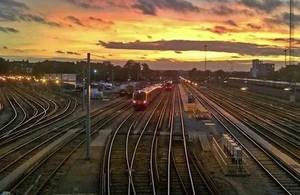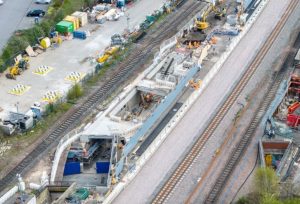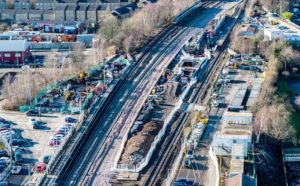Mayors threaten legal action to halt rail ticket office closures

Resistance to plans to shut almost every railway station ticket office across England is gathering momentum, with northern mayors warning they could resort to legal action to keep these offices open.
Mayors across northern England have written to train operators, setting out the legal steps they will take if a consultation to close the majority of rail tickets offices and drastically cut staff available to support passengers, is not halted.
On 5 July, the Rail Delivery Group (RDG) said the public would have 21 days to have their say on plans to close almost all of the 1,007 remaining ticket offices in the country.
Five mayors have joined forces to raise their concerns about the plans and to confirm they have taken legal advice on challenging rail operators – TransPennine Express, Northern Trains Ltd, LNER, EMR, Thameslink, Greater Anglia and Avanti.
The mayors include Mayor of Greater Manchester, Andy Burnham, Mayor of West Yorkshire, Tracy Brabin, Mayor of Liverpool City-Region, Steve Rotheram and Mayor of South Yorkshire, Oliver Coppard.
They have sent pre-action protocol letters to each of the above rail operators, outlining their course of action if the consultation is not halted.
The mayors say the closure plans would impact the most vulnerable in society, including disabled and older people, with many ticket machines at railway stations outside of London not being accessible as they are cashless.
Brabin said: “Ticket office staff are essential if we want our railways to be accessible to everyone.
“As a commuter myself, I know our rail system is already too fragmented, with complex ticketing options across a patchwork of operators. On top of this, rail passengers in the North have endured months of disruption on the network – this frankly insulting proposal is the last thing we need.
“No amount of window dressing can hide the fact that this move is a smokescreen for savage cutbacks to the service.
“This consultation is barely worth the paper it’s written on. We will not stand by as this wilful act of sabotage is inflicted on our rail network.”
Burnham said: “This consultation is shambolic and totally inadequate and our letter sets out how we will challenge it legally if it is not halted and reviewed now.
“The Government and Train Operating Companies know what they are doing here, they are trying to dress up staff reductions and cost cutting as ‘improvements to customer service’.
“What’s worse is they are trying to railroad this through by way of a chaotic consultation – that is why we have come together with this legal challenge to suspend the process immediately.
“These closures will impact the most vulnerable in our society, including older and disabled people, and to give them just 21 days to feedback when they are less likely to have internet access, is outrageous.
“They are trying to close almost every ticket office when services in the north are the most unreliable they have ever been, but prices are still through the roof.”
Coppard said: “I’m astounded the Government think it’s a good idea to close scores of ticket offices across the country.
“At a time when we’re asking people to leave their cars at home and when more people than ever are trying to save money, access to advice, help and even a friendly face is more important than ever.
“After months, if not years, of travel chaos across the North, these plans to close ticket offices will make rail travel, if not impossible, then much harder for so many.”
Rotheram added: “The measure of any decent society is how it treats its most vulnerable citizens.
“The Government’s plan to railroad through these ticket office closures, with a completely inadequate 21-day consultation, shows a complete disregard for the passengers, mostly disabled and elderly residents, who will feel its impact most.
“Not only do these proposals threaten to cut off some of the most vulnerable members of our society from accessing the railways, but they are also playing a dangerous game with people’s livelihoods too.
“We cannot and should not accept a public transport system that leaves behind the very people who need it most.”








